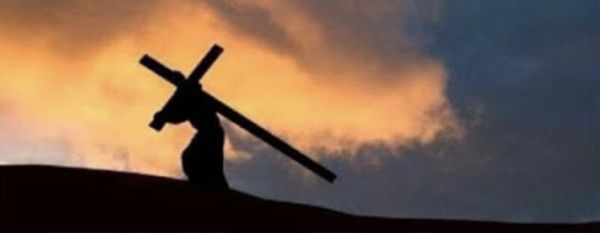(Mk 6:14-29)
The question "Who is Jesus?" grows throughout the Gospel of Mark, up to the answer of the centurion under the cross (Mk 15:39).
The account of people's opinions (vv.14-16) suggests that even around the first assemblies of believers some were trying to understand Christ from what was already known.
Not a few wished to understand his Person on the basis of criteria drawn from the Scriptures or from the even oral Tradition of the chosen people; from ancient beliefs and suggestions - even superstitious ones [as in the case of Herod].
But the Herald of God was not a purifier of the Temple, nor a mere patcher of dated religiosity, of domesticated cultural ideas. Not even one of the many 'reformers'... all in all conformists.
He overturns the hopes of the people, thus disturbing any school of thought; in particular, those who hold the exclusive.
When he senses danger, those shrouded in lustre and power become brazen and willing to any violence, even for a false point of honour.
Tyrants always mock the isolated, inconvenient and defenceless.
But leaders and the powerful are also cowards: they do not intend to lose face in front of the allies of their inordinate and unchecked environment, cloaked in exemptions.
During more than 40 years of his reign, Herod Antipas had created a class of officials and a system of privileged people who had the government, the treasury, the economy, justice, every aspect of civic and police life in their hands.
His command covered the territory extensively.
In every village, the ruler could count on the support of all the cliques and various local leaders, interested in controlling consciences - together with compromised scribes and Pharisees, linked to his politics.
Besides being a puppet of Rome - to which he guaranteed control of the territory and the flow of taxes - Herod was depraved and (indeed) superstitious. He thought that even a light oath to a dancer should be kept.
Josephus Flavius, on the other hand, reports that John was in prison for fear of the ruler of a popular uprising - and was considering that it was good for him to act in advance.
The assassination plot was probably casual.
The brave man who denounces abuse is crushed, but the Voice of his martyrdom is no longer silent.
This is why the episode does not induce Jesus to greater caution. Once an envoy is killed, another greater and more incisive one takes his place: the last of the Prophets, the Son of God.
The delinquents must not delude themselves that Providence does not know how to equip even the most spineless high places with the counterbalance of coherent and valid people.
Generic and confusing religiosity can adapt to any season and be embraced even by those who think others' lives are worthless - but a Prophet does not stop at the whim of the corrupt system.
Both John and the Lord never visited the new Herodian capital, Tiberias, the city of courtly palaces. Built - after Sefforis, where Jesus also worked - in diplomatic homage to the Roman emperor.
In the Palestinian villages, the life of the people was harassed with taxes and abuses by landowners, who did not even reside there; controlled by the perfect combination of interests between civil and religious power.
Complicity that the leaders slyly tried to impose, according to their way of life. Also by conveying many calibrated narratives to the crowds, and inculcating (useless) knowledge.
The leaders of the popular, orthodox and compliant faith - as is often the case - were on the leash of the authorities on the ground, who considered themselves definitive and found strength in the coalition.
It seemed absurd that anyone in that society would dare to break the wall of silence that ensured that troublemakers, 'spiritual' authorities and even low-level bullies could consider themselves untouchable.
Faced with the (unceremonious) blackmail of the privileged who were in control of every social and cultural stratum, it seemed impossible to start a new path, or to say and do anything unaligned.
John and Jesus challenge the status quo and attract the vengeance of those who seek to perpetuate the prerogatives of the ancient hierarchical cosmos, and the anger of those who are exposed in their hypocrisies.
This is the real difficulty that the proclamation of the new kingdom encounters in the world. Its contemptuous rejection and every attempt at murder will be a litmus test of our noble critical frankness, the revelation of which will run parallel to the Two.
The Baptiser was an intrepid denouncer of vice, superficiality, malpractice and the perversions of the powerful.Of these, Pope Francis would have spoken of good manners [in the pursuit of cordial alliances] and bad habits [in the irresponsible and insulting private life, and in the violence with which dominion over the little ones is perpetuated].
Jesus, too, put his foot down, instead of making an internal career. In spite of John's foreboding, he rejected the path of weighed-up malice, pretense, diplomacy, and pirouettes of circumstance.
The Master stood in defence of conscience and divine law itself, against opportunistic religious and political authorities, whom he challenged head-on.
Today too, the Lord asks for courage not to bow down in the face of corruption, evil, the current mentality; to be different in the way of thinking, of speaking [mellifluous].
He asks to choose and act.
Unheard, mocked, opposed by many lords, luminaries and courtiers, the children of God bear witness to the Truth, paying for it in person: perfect Lethitude.
Authentic Fullness.
To internalise and live the message:
Do you know victims of authoritarianism, corruption, domination of the powerful, excess and extravagance of power? Even in the Church?
How is it that this still happens - and everything is silenced sooner or later?
Who is Jesus according to you and others? And what would you say?












